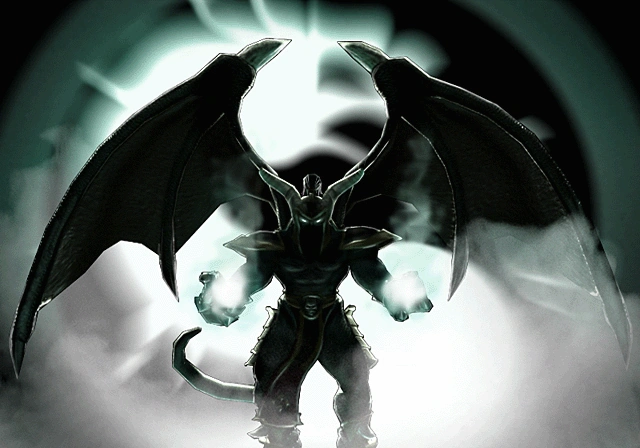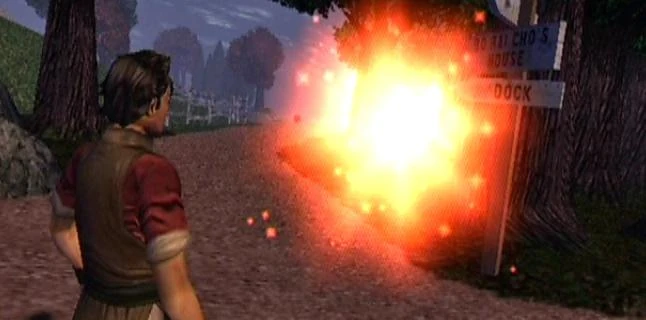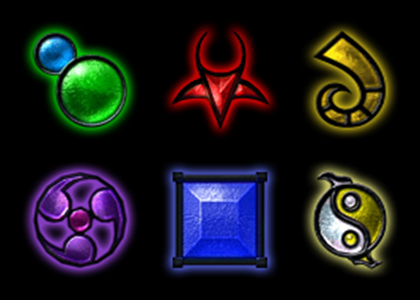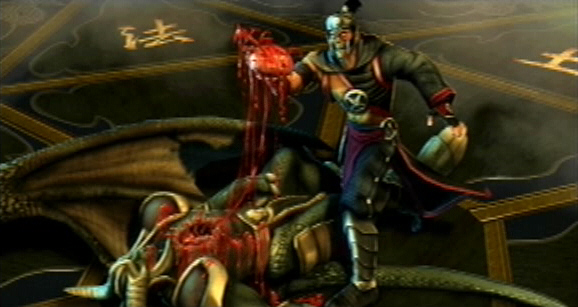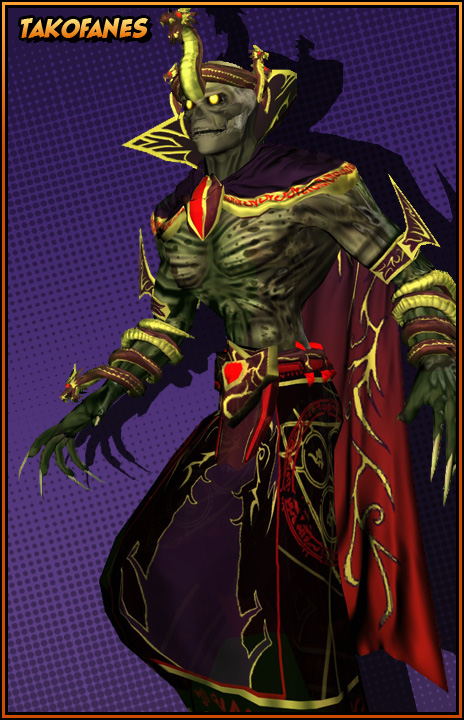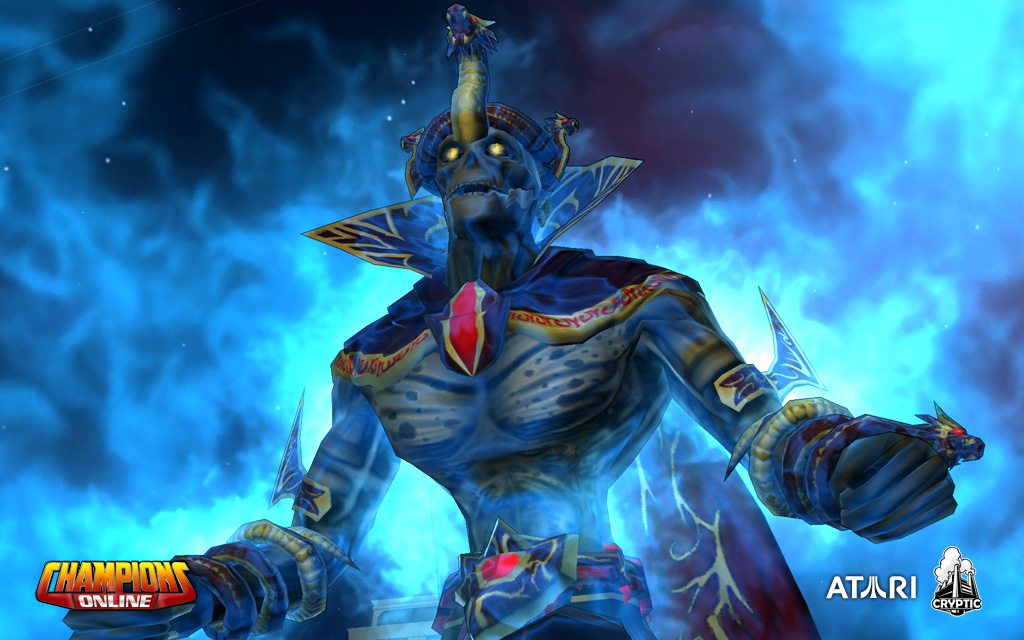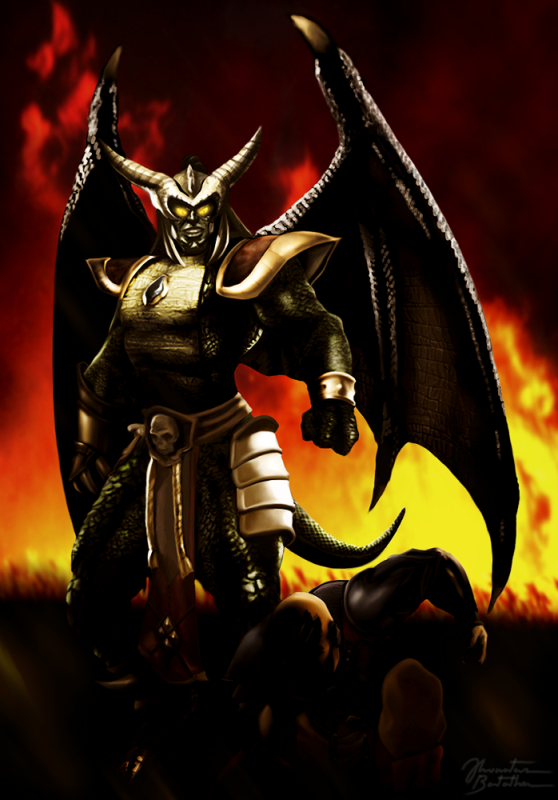So recently I watched a really good start of a series (Infinity Train for those wondering) and that led me to think how good the starts of my favorite series. So I decided to rank them.
For a first installment, like a chapter or an episode, there's really three things I judge by.
1: Is it enjoyable in itself without the rest of the series. Obviously a series opening that makes you not want to watch the rest of the series because of it's quality is not good.
2: How well does it set up the characters? Does it set up the main character's personality and goal? How many of the characters introduced are important halfway or near the end of the series? If the characters are ill-defined after episode 1 or if you have an inaccurate understanding of them, that's probably not very good.
3: How well does it tie into or foreshadow the story later on? Does it foreshadow plot elements for later in the series? Even if your story is completely episodic, does it set up the themes that will be major recurring elements or at the very least express the tone the series is supposed to have? If you first episode is a complete story that has nothing to do with anything that happens afterwards save the characters, then it's not a very good opener for the rest of the series.
For some of these there can be some contention as to what the start is. First episode of a series and first chapter of a book or a manga seems pretty well comparable but how do you compare to something like film? I guess you could just take the first ~20 minutes or so. Maybe the first act? That isn't really a problem for me since all my favorite films are either not part of a series or are part of a bigger franchise and so wouldn't qualify here.
The bigger problem is games, and I have to be sort of loose on the definition. I can't even use ~20 minutes because gameplay speed is relative. Doing my best, I'd say basically for the equivalent of first episode or chapter I'm using the closest equivalent to the first level or the section of gameplay up until the first "boss" encounter. This loose method works alright for most of the other contentious examples.
That said there is one example that I just don't how to list, and I'll start the list off with it not because it's actually the bottom but because I honestly don't know how to assess it.
???: The Stanley Parable
The Stanley Parable is a very short "game" for the most part and doesn't really have levels. There is an opening cinematic and then a number of branching paths each of equal validity to be first or last. From what I can tell, my first playthrough was abnormal. My first time I simply did what the narrator told me too, and I find it somewhat amusing that the majority of people seem to feel compelled to TRY and rebel to get some measure of power.
There's no way for me to properly rank this, it's closest comparison being a choose your own adventure book.
31: DC Comics
It's probably not really fair to rank DC Comics in this list but it is doable. The first issue of Detective Comics came out in the 1930s and was a collection of very short historical stories and "comedic" strips. I put comedic in quotes because the humor is, as might be guessed, quite dated.
The first issue of Detective Comics isn't really the DC of today, despite sharing the same name and owner, as it shares no similarities in terms of content. If you were to use the first Superman Story, the first story taking place in the main DC Universe instead, it could maybe go up a place, but the earliest DC Earth-1 stories are still rather dated and while much more interesting, tend to lack characterization or very interesting plots and also barely tie into greater plots.
30: Metroid
The original Metroid is actually a fairly short game, to the point that 20 minutes could be seen as the first 1/4 to 1/3 of the game. The game only has two bosses, Kraid and Ridley.
Metroid is impressive in it's ability to create a sense of loneliness and isolation through it's level building and atmosphere, but in Metroid 1, especially with just a part of it, there isn't really much plot. There's no other characters to interact with, there's just the opening and closing text that even gives context on what's going on, and gameplay was also lacking certain Metroid elements.
The thing most commonly mentioned about Metroid, that reveal that Samus is female is also something that doesn't appear until the end so that can't really be considered.
It's fine, but using just the beginning part there isn't much to consider or boost it up. That said it's also a lot atmospheric and mentally stimulating then the first issue of DC Comics.
29: Pretty Cure
The first episode of Futari wa Pretty Cure is a neat little magical girl first episode but it's not hugely distinctive from most of it's contemporaries in that regard. The most notable things I can think of are the characters using far more melee based attacks then normal, lots of punching and kicking which isn't something that hugely interests me and the series starts with two magical girls that are roughly co-stars rather then a single main character magical girl with a team of secondary ones, though such a thing had been done before on rarer occasions (Kaitou Tenshi Twin Angels for instance).
The original season of Pretty Cure does have some great moments that said episode 1 is very sort of vanilla Pretty Cure and doesn't have a huge amount of interesting things happen in it, though the stuff that does happen is it enough to put it above the almost plotless beginning of Metroid.
28: Danny Phantom
Danny Phantom I thought had a sort of arc in quality, where season 2 was the best, with 1 and 3 both being good but not quite as good. To be honest, while I came to really love Danny Phantom, it's start was only "pretty" good, and wasn't indicative of how well I would think of it later (the series really got good in my opinion with the first appearance of Vlad)
The biggest problem with episode 1 as a start is characterization. Sam and Tucker act uncharacteristically and Sam acts downright unpleasant trying to force her entire school to not have meat because of her personal beliefs. Fortunately this was not maintained but this false impression is not really a great start. Also the villain is the Lunchlady Ghost who is not really one of the better Danny Phantom villains in my opinion. Danny Phantom has a great rogues gallery, and she is just sort of alright in my opinion. The episode does introduce the coming of age theme of the story, and it does introduce a lot of characters, however the two problems mentioned above are why it's ranked so low.
Comparing the first episode of Futari wa to the first episode of Danny Phantom is a study in contrasts. The first episode of Futari wa is a very good depiction of what to expect but it's also so good at being like the rest of the episodes that it's very vanilla and uninteresting to talk about in itself. The first episode of Danny Phantom is somewhat an inaccurate depiction of what most of the series is like though is a lot more distinctive. Either could be higher or lower but I put Danny Phantom higher mostly because it's inaccuracies are only partial.
27: Panty and Stocking with Garterbelt
I am not really sure how to count shows where the episodes are split A and B. For the sake of it I will be including both to try and be fair, though if you included just the A episode it would probably be lower.
The very first episode of P&S, just the A episode I personally don't like a lot because of how gross the monster of the week is. I like P&S a lot but it's toilet/gross-out humor is my least favorite part. I will concede though it does introduce the main duo as well as Garterbelt pretty well and the second episode is a fun cool episode more indicative of what most of the series is like in my opinion. That said a lot of series staples like Briefs or the Daemon Sisters don't get introduced until later.
I put the first episode of P&S over the first episode of DP primarily because it doesn't give any kind of incorrect impressions even if the first half does kind of gross me out.
26: Axis Powers Hetalia
Hetalia episodes are 5 minutes long which left me at a bit of an impasse. Do I judge strictly on the first episode or on like the first 4 episodes? Either way I don't think it makes a huge amount of difference, but feel free to move this up a spot if you want. Anyway first episode of Hetalia briefly introduces us to a bunch of countries quickly and is honestly pretty clever at it, though it contains Hetalia's trademark "trait" (read: problem) of randomly jumping around in history without much focus.
I give it points for being able to introduce a large number of characters in quite literally the time some shows a lot to their opening theme, but it lacks a lot of focus early on, and also the main character Italy says literally 1 word in the entire first episode. I don't mean says 1 word and repeats it, I mean literally says 1 word the entire time (unless you also count Chibi-Italy's words in which case he says a lot more). I put it above P&S mostly just do to giving us pretty much all the main cast's personalities.
25: Magicka
The first level of Magicka is one of the least exciting, at the very least if you are used to the game or trying to actually play it and not just blowing up your friends a bunch as it's really easy. The first level is basically an extended tutorial ending with the fight with an enemy that would later be a common enemy you fight in groups (you also fight a much faster scarier version of that enemy in groups).
What is great about the first level of Magicka though is that the creators wanted to and indeed gave all the spells right up in the first level because they thought it would be more fun. And indeed on any kind of repeated playthrough it would have been so annoying to unlock the elements. There is a simply joy of discovery to Magicka in just playing around with the elements that put it here. It also gets points for introducing Vlad, Grimnir and the player wizards. Even Khan technically makes a cameo.
It's above Hetalia because it's introduced a lot of the major characters as well but gets at the central appeal of the series a lot more.
24: The Powerpuff Girls
Wasn't sure whether to include pilot or shows but since I wasn't including prequel material for anything else felt it proper to start at episode 1 of season 1.
What I can give pretty immediate commendations for are a lot of characters are introduced; the girls, the professor, Mrs. Bellum, the mayor, Mojo and Sedusa are all introduced pretty well which is pretty impressive. The plots are both interesting, moreso the Mojo plot imo, though I will say for a superhero show it's not very superhero-y at the beginning since the first episode the girls are mostly fighting while transmuted into dogs, and in the second episode they beat Sedusa fairly easily. Still It's a pretty good start. You can argue it also introduces the familial theme of the series with the second episode which would be fair.
I put it above the Magicka start one for more characterization work in the first 2 episodes and more interesting plots
23: Tokyo Mew Mew
The first chapter of Tokyo Mew Mew suffers from not being a very complete story in itself, but it does set up the other material very well, tacitly introducing the villain, as well as introducing Ichigo and in the manga at least briefly introducing all the other Mew Mews too.
Tokyo Mew Mew has a pretty explicit environmental theme that the episode has as well, with the opening narration and Masaya's talking about it which will come into play later. We also get an introduction to Ryou which is pretty fitting for him.
I put it above the PPG start for introducing the central theme more clearly.
22: Wander over Yonder
The first episode of WOY introduces us to all the major characters for season 1 at least, as well a large number of secondary villains. The only major character not introduced within the first episode would be Dominator.
Personally I thought WOY got a lot better after Domintor's introduction. That's not to say it was bad before, it was pretty good, and that's roughly what I think of the first episode, as it introduces Hater and Wander's characters especially.
I especially like that the second part is focused on showing Wander's personality though I think 2b might be been a better choice for 1b since it shows both Wander's personality and why he acts that way.
Both the TMM and WOY starts introduce a few characters in detail, though WOY does in more detail, and both briefly show a large amount of characters that would be notable later, though as WOY doesn't have as many major characters for WOY these are more villains that would briefly come into importance. I think while both introduced the major theme of the series, WOY also introduced more literal plot elements that would into importance later.
21: Yuki Yuna is a Hero
Yuki Yuna is a Hero's start is pretty immediately aesthetically eye-catching especially with it's very particular musical score. It also introduces and gives characterization for 4 of the 5 major characters of the series, introduces the concept of the Vertex and Shinju and gives some brief subtle bits of world-building. It also has a awesome moment for the main girl when she stands in civilian form in front of her wheelchair bound friend and manages to partially henshin her arm fast enough to block a projectile.
The start was really good in immersing us in this world and for me at least immediately investing. The only big criticisms you could give is that it is somewhat disconnected from the themes and the allusions to later plot elements are vague, which I know is obviously purposeful because it's supposed to reflect the characters minds at this point.
I put it above WOY's start since it was more immediatly investing in this world while introducing the same amount of major characters.
20: Yu-Gi-Oh!
The first chapter of Yu-Gi-Oh! is a pretty interesting mix of a dark occult story of a boy getting a magic puzzle that turns him into a magically powered psychopath that goes after his bully and the heartwarming story of a shy friendless boy reconciling with some kids that were mean to him and making friends with them. That said it's a pretty good short story by itself and certainly introduces the theme of friendship.
That said, this was before the duel monsters trading card game came into focus, and while a good chunk of the manga is separated from that, it can end up feeling somewhat disconnected given the sheer emphasis eventually placed on it. Large amounts of the plot elements about Ancient Egypt and the responsibility of royalty or the regaining of memories and identity had obviously yet to be introduced.
It's fairly similar to the Yuki Yuna start since both intoduce a lot of major characters, some important plot elements, and is very entertaining in itself, but lacks connection to later parts of the series. That said Yu-Gi-Oh!'s start is more of a complete story in itself, and while Yuna gets an awesome moment, both Yami Yugi and the pair of Jounchi and Honda get cool moments.
19: Freedom Force
It's kind of ambiguous whether this would be up to the point Minute Man interrogates O'Conner or up to the encounter with Sukhov which massively would alter the ranking. Was generous and gave up to the Sukhov standoff but if you think I should only do the former then this would be a lot lower.
The start introduces Minute Man and Mentor who are.....it's arguable who the main character of Freedom Force but Minute Man is a major character and Mentor has an argument for being the main character. It also shows us Nuclear Winter technically and introduces the wacky silver age styled world of the Freedom Force which was cool as well as explains basically the entire reason for things happening with Mentor's dialogue with Minute Man about his escape to Earth causing the Energy X fiasco.
Yu-Gi-Oh's start and Freedom Force's start are again a study in contrast. Freedom Force's opening is bursting with the flavor and thematics of the rest of the game, the stylization of it, but only introduces a very limited part of that world at the start. Meanwhile Yu-Gi-Oh! introduces more but in a world that is seperate from the world it will eventually become. If the first chapter of Yu-Gi-Oh! had also introduced Kaiba even briefly I probably would have put it ahead of Freedom Force's start but I feel like the difference in the number of characters introduced isn't large enough and FF squeaks ahead.
18: Cardcaptor Sakura
I'm kind of a sucker for this one, just out of nostalgia reasons, though I feel the anime start is actually probably better then the manga start. The manga starts off in media res, with Sakura chasing the Jump card throwing out lots of mysticism right away and then going into the backstory behind it. The anime just starts off at the start.
I'm not sure what the purpose of this in media res start is here, and felt the anime's gradual slide into it was probably more logical. The start of CCS introduces a lot of the important characters including Sakura, Tomoyo, Touya, Kero, Kind of Yue...which is good and it gives a glimpse of their school life but only gives Sakura pursueing a clow card at the start with her capturing Jump, and there it doesn't really show how she did it. While it's fun and nostalgic to see the crew and the start does give some plot foreshadowing with Kero's exposition of the clow cards, most of the chapters of the first half are Sakura using her intellect or courage to capture one of the clow cards so it's a bit misleading.
I put it above Freedom Force's since while they both immediately engross people in the worlds, and Freedom Force's is arguably more accurate to later in the game (though FF obviously becomes far more tactical with more then 2 characters powersets), CCS introduces more important characters, gives the same amount of plot foreshadowing, and also shows the interactions between more characters.
17: Saint Seiya
The start of Saint Seiya is really cool. It has a fun fight between Seiya and Cassios for the Pegasus Cloth (which is a fair indication of the series as it contains elements of the series like many punches a second, characters using the power of cosmo like Seiya tracing out the constellation Pegasus, Seiya reversing an ear-ripping move etc.) and it has Marin's lessons about cosmo, which is basically both plot and thematic foreshadowing for the rest of the series, as well as some other plot foreshadowing with Marin's mask, the talk about Seiya's sister,
The only real downside is that not a lot of very major characters are introduced. Marin and Shaina are secondary characters at their best, and outside of Seiya none of the major characters are introduced. None of the other 4 Bronze Cloths, none of the series major villains, etc.
While it doesn't introduce many characters, I put it above CCS start because not only does it do a better job of demonstrating what the series will be like, as well as is a more straightfoward story in it's own right.
16: God of War
The start of God of War is basically the start of God of War 1 up to the end of the Hydra fight and arguably the cutscene that follows.
What the start of God of War does really well is introduce Kratos. Kratos's tragic nature is alluded too well, with literally the first few seconds of the game involving Kratos mournfully attempting suicide. Even in the level itself, people cower in fear from the "Ghost of Sparta". Kratos personality is made out to be a pragmatic anti-hero as well a man broken from nightmares such that nothing can clear his mind. Kratos is unique in the field of antiheroes for his emotional expressiveness. Most modern anti-heroes are stoic bad*ass archetypes who say little and have one rage-filled emotional breakdown near the end to show how scary they can be. Kratos is a more accurate recreation of the ancient greek hero, constantly moved by passions and showing the range of human emotions constantly.
The start, as the GOW series is famously in general, quite theatrics with a large boss fight merging puzzle and combat. It also sets up the rest of the game's plot and themes very well, foreshadowing them heavily with the very first seconds of the game setting up the tragic nature of Kratos' quest just as an actual ancient Greek epic.
The one big downside is that none of the other characters are really introduced. There's brief bits seen of Athena and Poseidon but nothing of Ares and Zeus who are major characters in the GOW series, and even just for the game Ares at least nothing is shown off.
I put the start of GOW over the start of SS because both set up the world but not the characters and both very well introduce their main character with an engrossing story, but Kratos's character is presented much more strikingly then Seiya's.
15: Cutie Honey
The first chapter of Cutie Honey is a strikingly accurate depiction of the rest of the series, with it's odd mixture of goofy 60s science-fiction mixed with racy dark 70s crime thriller, mixed with lots of fanservice. The only things really left out are the acrobatic fight scenes and the occasional tragic moment that gives the series it's surprising gravitas.
The first chapter is very good at establishing the world, showing the boarding school Honey goes too, it's deranged student body and teachers, as well as her creation and the panther attack on her father's laboratory.
So long as you don't mind blatant fanservice, the emotions are actually rather sweet of some parts, such as Honey's gratefulness to her father.
The only big downsides are the fact the villains are not explained very much with Jill not even shown, as well as the lack of the elements mentioned more, that said the series capturing so much of the odd mixture that makes up the series is why I put it above GOW's start.
14: Over the Garden Wall
The first episode of Over the Garden Wall is a very good minimalist explanation of what the audience is going to see for the rest of the series. It introduces Wirt and Greg, the two main protagonists as well as the main antagonist the Beast, as well as the Woodsmen. It introduces the themes and atmosphere of the series and has a very brief plot foreshadow for the sharp-eyed viewer. It's also a good story in it's own right.
This is where things start to get really hard to even compare because everything by this point is just really good. If I had to nitpick, I would say this doesn't really show us the world of the unknown and how animals can talk and be taught to act like people, though this is a lesser point given that it is clearly inspired by Folklore where such things do tend to happen without explanation.
I put it above Cutie Honey's start because while both capture tone and most of the primary characters well, OTGW also introduces (and builds up) the primarily villain while even the monster of the week for Cutie Honey is barely introduced.
13: Sailor Moon
Sailor Moon's start is interesting to talk about for me to talk about given my obviously large connection to the series. The SM first chapter has been done and redone and parodied and referenced in pop culture numerous times. Interestingly it has more flaws then some of the preceding ones but it's story and characters are so appealing to me that it somewhat counteracts it.
In terms of faults, the SM start doesn't really introduce any notable villains, not even the Beryl who is the false big bad of the first arc. It doesn't introduce any of the other senshi (though I don't see how it really could in it's time). Also while Tuxedo Kamen is technically introduced, he remains mysterious meaning his personality is not fully introduced. The series does give us a very good introduction to the main character Usagi, and actually I would say beautifully ties into both the central theme of the arc and the series into the first chapter, those being the themes of identity and how love will uplift the crybaby coward Usagi into a hero (as shown when Usagi hears that her friend Naru is in danger and rushes to help her despite being scared of the monster).
I don't know how much of the Sailor Moon's start's position is attributed to exactly how much I love the characters and world and tone of Sailor Moon and how much is due to it's actual starting qualities, though I feel it's a pretty good start for the series. I put it above OTGW since it more centrally weaves the themes into the narrative and more emphasizes them.
12: Ouran High School Host Club
The OHSHC start is really amazing at how well it introduces so many characters while also telling a complete story within as well as tying it's themes of gender and class in very well.
The series introduces all the hosts and their eccentricities both efficiently and playfully, has numerous examples of Haruhi's class boundary with the other characters coming into focus, tells a story of Haruhi's bullying and the reaction of Tamaki-senpai. It also even within the very first few minutes introduces the tone of the series well with it's explanation of the nature of the Host Club. If you have to nitpick, Haruhi's gender only becomes known so how the other hosts react to this information which is fairly important for the rest of the series only becomes known in the next episode.
I put it above SM's start because it introduced way more major characters as efficiently, tied in 1 of the two themes as gracefully as SM did, as well as introduced a secondary theme to a lesser extent.
11: Magic Knight Rayearth
MKR kind of has an unfair disadvantage due to the size of it's chapter being about 3 times larger then a normal manga chapter, though even if you include the section of the manga that was translated into the first episode of the anime, it's position wouldn't change very much.
The first episode of the MKR is exemplar in how it introduces the three main characters, give insight into the type of relationship they may grow into, as well as introducing Guru Clef, Zagato and if you include the whole chapter, Mokona, Presea, Alcyone and even briefly introducing Ferio. They also set up the world of Cephiro and it's rules, as well as trickily threading the needle pretending to be a standard middle ages fantasy world while alluding and foreshadowing the eventual plot and thematic reveals at the end of the first arc.
I put MKR's start above OHSHC's start because it introduced it's main cast as well, introduced it's theme about as well, if much more subtly due to what it needed to be for MKR, and also managed to introduce the fantastical world of Cephiro. OHSHC only had to introduce the rich school world of Ouran which is a bit less removed from us then a fantasy world.
10: Bayonetta
I remember first time seeing the start of Bayonneta and thinking "Yep this is definitely something for me." Bayonetta has an immediate aesthetic and plot of things I like in fiction including femininity, sensuality, occult/arcane mysticism, elegance, and celestial themes. Immediately upon starting the series introduces us to the chaos of the war between light and dark, the lumen sages and umbran witches. The chaos of light and dark being mixed will be recurring element both on a literal plot level and thematic level and it's immediate introduction and demonstration in the flurry and visual duality of the start is very good.
The start also introduces many of the series important characters including Bayonetta, Jeanne, Rodin etc. Some players have noted feeling overwhelmed though personally I felt that was good for this form of experience.
I put Bayonetta's start above MKR's start because MKR at the very least SEEMED somewhat cliche in both world and characterization and while this was a deliberate misdirect, Bayonetta from the start seemed chaotic and a combination I had never seen before so well executed.
9: Shamanic Princess
Shamanic Princess has the in-media rez start applied properly, used to create confusion and intrigue. The Shamanic Princess start introduces us gracefully to the world and it's major players without explaining anything, which I found mentally gratifying that it trusted me to figure out things. All the elements presented with prominence are important later (save maybe the school depending on interpretation) showing a good use of emphasis as well.
The Shamanic Princess start has much in common with the Bayonetta start mixing a feminine elegance with a dark occult theme as well as introducing all the major characters save for the primary villain almost immediately. That said Shamanic Princess also introduced both the main theme and the the resolution to the story veiled within the first episode in the non-dualistic analogy of the ball falling into water, meeting with it's reflection. Bayonetta only introduces those elements more gradually over the course of the story.
8: xxxHolic
xxxHolic's start is interesting to talk about. In the manga it does actually introduce all the major characters right away, save for the Mokonas as well as set up all the plot and themes of the series. Yuuko in her characteristic way talks mysteriously, but she clearly brings up themes of predestination and equivalent exchange which will be the major themes for the rest of the series.
I put xxxHolic's start above Shamanic Princess' start because it's a more complete and interesting story in itself and xxxHolic does't have any villains it really could have introduced in the first episode unlike Shamanic Princess. Also Shamanic Princess and xxxHolic both introduce their themes mysteriously and vaguely but xxxHolic does it with a bit more clarity.
7: Puella Magi Madoka Magica
PMMM's start when talked about it usually only talked about in terms of the "twist" ie the assumption that Madoka pretended to be a "normal" magical girl series and then became the dark edgy deconstruction in episode 3. Personally I disagree that was the case at all, I don't think Madoka is that dark or edgy nor do I consider it a deconstruction. Also it was pretty apparent with it's nature right from the beginning imo.
Madoka's start is really masterful, weaving in 4 of the 5 main characters, the themes and plot foreshadowing apparent at numerous times in the first episode (literally showing the climatic event of the penultimate episode at the start of the first episode with Madoka's dream sequence). Kyubey is also introduced as is his in a sense his goal. If you wish to nitpick you could say that Homura's personality is mysterious at the start and not made clear, similar to Tuxedo Kamen so it's arguable whether their personality is introduced. Also the concept behind witches (the first concept as it is) isn't made clear until the second episode. That said it's clearly a really artistic start and a good opening.
I put PMMM's start above xxxHolic's opening because while both introduce the themes of the series, Madoka makes them explicit even if the details are vague while xxxHolic leaves the themes vague initially.
6: Undertale
Undertale's start is honestly really inspired assuming you are allowing up to the Toriel fight.
It both explicitly explains the theme of pacifism vs fighting as well as personal choice, as well as ties it into the plot of the start, and has it permeate the atmosphere of what you do. It introduces both Toriel and Flowey the final villain well and also well demonstrates the quirky tone of the rest of the game, while not losing the dignity the start built up. It also hints at the metafictional elements that would become increasingly important as the game goes on. It also alludes to Asgore, though Asgore himself and the rest of the important cast are not introduced yet.
I put Undertale's start above PMMM's because the themes of the series are made explict in their details and brought into sharper clarity by the gameplay mechanics and the in-game commentary on your actions while PMMM's themes initially are fuzzy on their details.
5: Xiaolin Showdown
Some of the series on this list started out at one level of quality and got notably better. XS didn't do that, it was for me at least freakishly consistent in terms of quality. Of the 52 episodes I wanna say I liked 40 of them about the same which is insanely constant in quality, and episode 1 is not really an exception. It was really enjoyable and fun with a good self-consistent story, it introduced all the monks, Master Dashi, Dojo as well as both major villains of the first season who would continue to be relevant for at least until the end of season 2 and then have some minor importance in the third season. It introduced the Shen Gong Wu, the backstory, the plot structure of the show. It's really good how efficient it was at introducing everything.
Also it was at the same time quite enjoyable to watch (I really like the joke about Omi playing on Kimiko's video game). XS didn't have much int he way of theme-ing, which was one of my relatively few complaints about the series, that much of it didn't have deeper meaning so there wasn't much themes to be introduced in the first episode though it did start the character development between Omi's arrogance and Raimundo's irresponsibility that would extend all the way to the end of the series where Omi learns humility and accepts Raimundo as leader and Raimundo learns responsibility and takes on the burden of being leader graciously.
I put XS's start above Undertale's because they both foreshadowed well the end of the series, and both were very good internally, and both introduced a number of main characters, though XS introduced more as gracefully, if not more gracefully as well as introduced a number of other concepts as well.
4: Commedia
Ok so first thing's first. If you believe in objective quality, this is obviously the first in that regard. The Commedia's canto 1 is well agreed by scholars to be a major breakthrough in the artistic traditions and western culture, representing a major shift towards humanistic thinking. The 3 higher are just ones I subjectively like more.
Commedia's beginning is amazing, the very first words introducing the humanism that pervades the whole of Commedia, it alludes to Purgatorio and Paradiso while also telling a story of why Dante can not properly approach them with the three beasts. It introduces Dante and Vergil and alludes to Beatrice. It starts of Dante's quest brilliantly.
It's also so deeply written as is the Commedia in general, with every tercet being capable of prompting philosophical discussion and introspection. It astounds me the profound bits of wisdom Dante simply drops here and there in his Commedia and how he unifies all the fields of knowledge of his day, which Canto 1 introduces in minor degree.
I honestly don't know how I could even possibly criticize Canto 1 outside of the realm of purely subjective like it's hard to read for a modern audience.
I put Commedia's start above XS's because Commedia's start feels more concentrated and focused while XS's is a bit more segmented into different parts.
3: Okami
Okami's start is just amazing at engrossing you into the world, starting with an explanation of the battle of between Amaterasu and Orochi and introducing numerous other characters quickly like Issun, Sakuya, Waka etc.
The game does an amazing job getting you into the mindset of the game quickly when one of your first tasks is to use the celestial brush to create a star by dabbing into the sky, or creating sunrise by painting it. It also introduces Okami's task not just to fight evil but to bring light and love back into the world with tasks like causing flowers to grow and such. It helps that it has such a distinctive artsyle designed to resemble Sumi-e.
If I had to criticize it for anything, it's that this point none of my favorite villains in the game appear and that it's a bit of a slow start, taking a bit to get going.
I put Okami's start over Commedia's start just because it's so immediately engrossing into the game, whereas with the Commedia it can be hard to get into due to the language being hard.
2: Yu Yu Hakusho
I should note, I go back and forth with the number 1 and number 2 positions a lot.
The Yu Yu Hakusho starts is one of the most effective I've ever seen, introducing us to the paradox of Yusuke, the delinquent everyone assumes bad off who sacrifices himself to save a kid's life in a moment of selflessness. It brilliantly introduces us to the world of the Yusuke Urameshi, why he thinks it's him against the world and that nobody cares about him, before showing him exactly how important he is, giving us an reason why he, and thus WE should care about him becoming alive again.
While it doesn't introduce all the major characters (doesn't introduce Hiei or Kurama most notably) it does introduce Kuwabara, Botan and Keiko. It also introduces the plot foreshadowing of how spirits work and the thematic foreshadowing of people becoming and being more then they seem which will be a major element of all the major characters in the series.
If there's anything to criticize for, it's that it doesn't set up more themes and plot elements of the series though considering how many are actually in the series, it's more a question of how realistic it would be.
I put Yu Yu Hakusho's start over Okami's because it's quicker pace.
1: Princess Tutu
Princess Tutu's start is incredible. It really is incredible, how in the span of 1 episode it properly introduces every single primary character and most of the secondary characters, as well as expresses or foreshadows their roles in the world, and introduces all the major themes of the series all in one episode.
And the really crazy part is that it does all of it subtly, you could watch it and not notice any of the implications until one of your rewatches. You could watch it and just enjoy for the story that is, and it is a really entertaining story without catching all the foreshadowing and theme-ing going on.
The only real nitpicks I have would be it just sort of expects you to take the strange things in this world at face value without explanation like the teacher being a cat (Which isn't too crazy, I mean plenty of western cartoons have talking animals normally, as does Dragon Ball for instance, and animals acting like people is common to folklore) and similarly it doesn't explain itself much in terms of plot as it's not very self-contained at all and ends on a cliffhanger.
Comparing the start of Princess Tutu to the start of YYH....YYH is probably more enjoyable by itself to me but I think Princess Tutu better foreshadows the rest of the series. At the moment I think Princess Tutu's start is better but it alternates.

